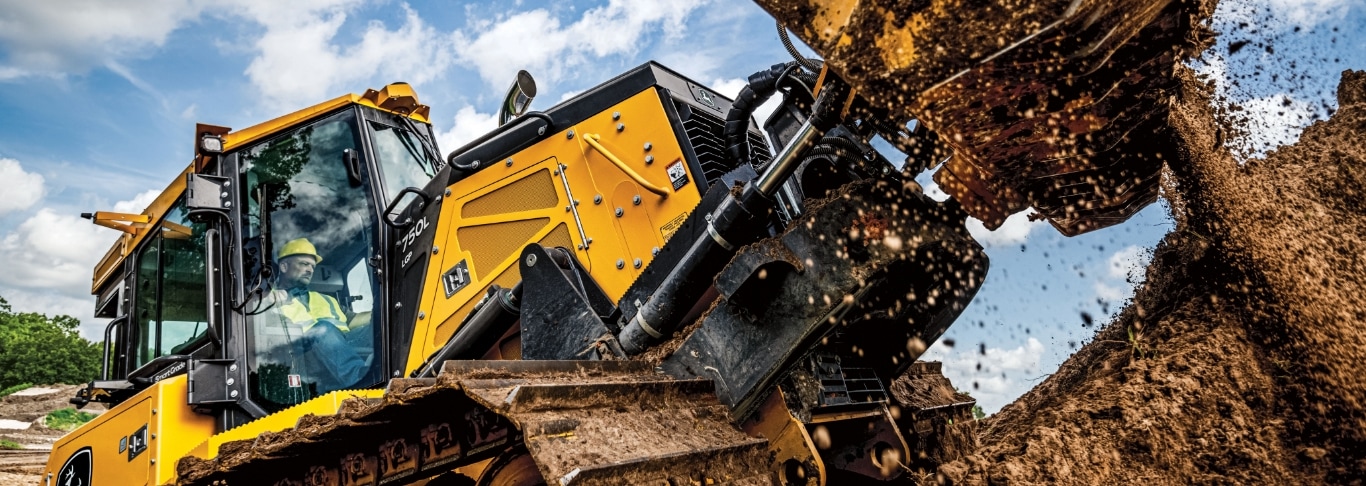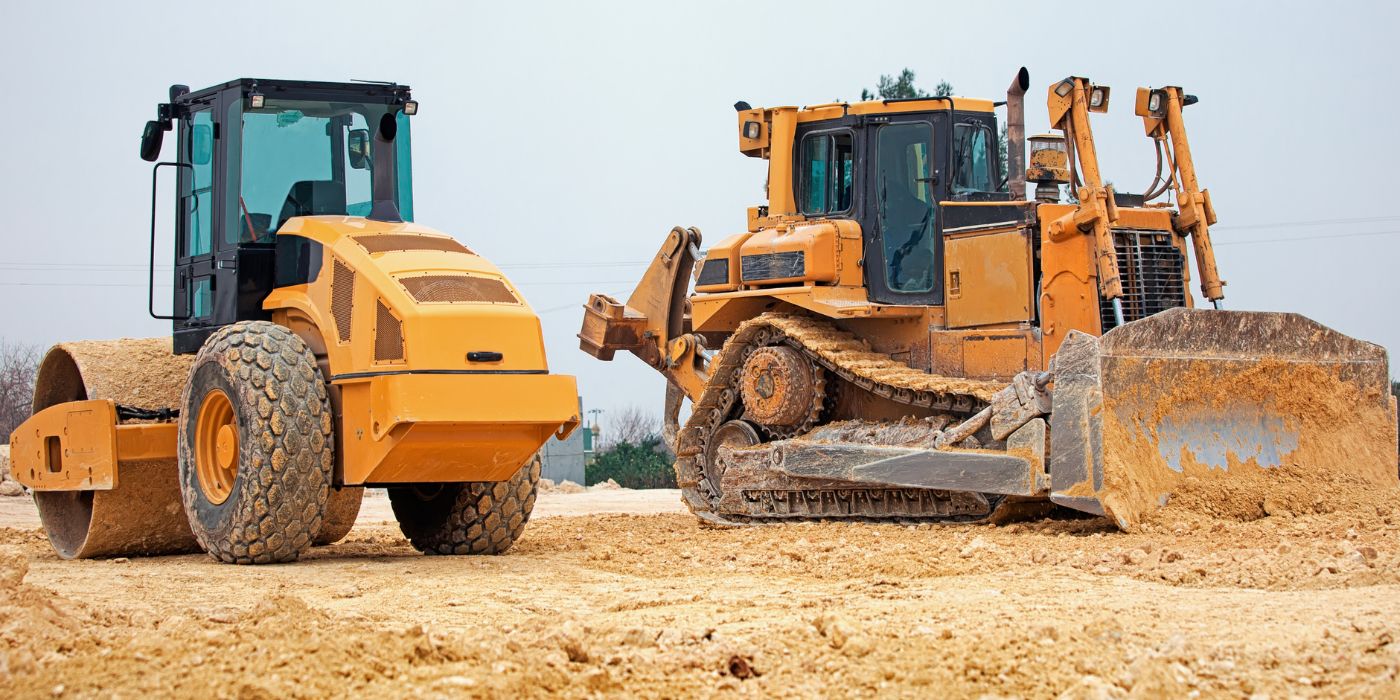Rental Company in Tuscaloosa, AL: Top-Quality Equipment for every single Job
Wiki Article
Checking Out the Financial Benefits of Renting Building And Construction Equipment Compared to Possessing It Long-Term
The decision in between having and leasing building devices is pivotal for economic administration in the industry. Renting out offers instant cost savings and functional adaptability, allowing business to designate sources more efficiently. In comparison, possession comes with significant long-lasting economic dedications, consisting of upkeep and depreciation. As specialists consider these alternatives, the influence on money flow, job timelines, and modern technology accessibility becomes increasingly significant. Understanding these nuances is essential, especially when considering how they align with particular job requirements and monetary methods. What aspects should be focused on to make certain optimum decision-making in this facility landscape?
Cost Comparison: Renting Vs. Having
When assessing the economic ramifications of owning versus leasing building and construction devices, a complete expense contrast is vital for making notified decisions. The option in between renting and possessing can dramatically influence a firm's lower line, and comprehending the linked expenses is crucial.Leasing building devices commonly entails reduced upfront costs, allowing businesses to allot resources to various other operational needs. Rental contracts usually include adaptable terms, allowing firms to gain access to advanced machinery without long-lasting dedications. This adaptability can be specifically useful for short-term projects or changing workloads. However, rental expenses can gather in time, potentially surpassing the expenditure of possession if devices is needed for an extended period.
Conversely, possessing building equipment requires a substantial initial investment, along with ongoing expenses such as funding, devaluation, and insurance. While ownership can bring about long-lasting cost savings, it also locks up resources and may not supply the very same degree of versatility as renting. In addition, possessing devices requires a dedication to its utilization, which might not always align with job demands.
Ultimately, the choice to have or rent out should be based upon a comprehensive evaluation of details task needs, financial capability, and long-term tactical objectives.

Upkeep Costs and Obligations
The selection between renting and having construction equipment not just entails economic considerations however likewise incorporates continuous maintenance expenditures and obligations. Owning tools calls for a considerable commitment to its upkeep, that includes routine inspections, repair work, and potential upgrades. These responsibilities can promptly accumulate, bring about unanticipated expenses that can strain a budget.On the other hand, when leasing devices, maintenance is commonly the duty of the rental business. This setup allows professionals to stay clear of the monetary burden related to wear and tear, in addition to the logistical challenges of scheduling repair work. Rental agreements commonly include provisions for maintenance, suggesting that professionals can concentrate on finishing tasks as opposed to bothering with devices condition.
In addition, the diverse series of tools offered for rent allows companies to pick the most up to date designs with innovative technology, which can enhance performance and performance - scissor lift rental in Tuscaloosa, AL. By going with leasings, companies can stay clear of the long-term liability of equipment devaluation and the connected upkeep frustrations. Ultimately, assessing upkeep costs and duties is essential for making a notified decision regarding whether to possess or rent building devices, dramatically affecting total project expenses and functional effectiveness

Devaluation Effect On Ownership

A considerable factor to think about in the decision to possess construction tools is the effect of depreciation on overall possession costs. Devaluation stands for the decline in worth of the devices gradually, affected by factors such as use, deterioration, and advancements in innovation. As tools ages, its market worth decreases, which can significantly influence the proprietor's monetary position when it comes time to sell or trade the tools.
For building companies, this devaluation can translate to significant losses if the devices is not used to its greatest potential or if it comes to be outdated. Owners have to account for depreciation in their monetary forecasts, which can bring about greater total prices compared to renting out. In addition, the tax obligation ramifications of depreciation can be complex; while it might offer some tax obligation advantages, these are typically countered by the fact of minimized resale worth.
Inevitably, the concern of devaluation emphasizes the importance of recognizing the long-lasting financial commitment associated with having building and construction equipment. Business must thoroughly assess exactly how often they will certainly make use of the equipment and the prospective financial impact of devaluation to make an educated choice about ownership versus renting out.
Financial Adaptability of Renting Out
Renting construction equipment offers substantial financial versatility, permitting companies to allocate sources extra successfully. This versatility is especially vital in an industry identified by rising and fall job demands and varying workloads. By deciding to rent, organizations can stay clear of the considerable funding outlay needed for acquiring devices, maintaining capital for other operational needs.In addition, renting out equipment makes it possible for firms to tailor their devices choices to details project demands without the long-lasting dedication linked with possession. This implies that services can quickly scale their devices stock up or down based upon anticipated and existing task requirements. Consequently, this versatility reduces the risk of over-investment in machinery that might come to be underutilized or outdated over time.
An additional monetary benefit of leasing is the possibility for tax obligation benefits. Rental repayments are typically thought about operating costs, permitting instant tax deductions, unlike devaluation on owned and operated devices, which is topped a number of AL years. scissor lift rental in Tuscaloosa, AL. This prompt cost recognition can even more improve a firm's cash setting
Long-Term Project Considerations
When examining the long-term needs of a building and construction business, the decision between having and renting tools ends up being a lot more intricate. Key aspects to consider consist of job duration, frequency of usage, and the nature of upcoming tasks. For tasks with extended timelines, purchasing tools may appear beneficial because of the capacity for lower total costs. Nevertheless, if the devices will not be made use of regularly across jobs, possessing may bring about underutilization and unnecessary expense on upkeep, storage, and insurance policy.Furthermore, technological innovations posture a substantial consideration. The building market is advancing swiftly, with brand-new equipment offering enhanced effectiveness and security attributes. Renting out permits firms to access the most recent technology without committing to the high in advance expenses related to getting. This adaptability is specifically valuable for organizations that take care of varied tasks calling for various kinds of tools.
Furthermore, economic security plays an essential function. Having equipment usually requires considerable capital expense and devaluation issues, while renting permits more predictable budgeting and cash money flow. Ultimately, the option between owning and renting out ought to be aligned with the critical goals of the construction service, thinking about both existing and expected project demands.
Conclusion
In final thought, leasing building and construction equipment provides considerable monetary benefits over lasting possession. Ultimately, the decision to rent rather than own aligns with the dynamic nature of building tasks, permitting for flexibility and access to the newest devices without the economic concerns linked with ownership.As tools ages, its market value lessens, which can dramatically impact the owner's economic placement when it comes time to trade the tools or offer.
Renting building and construction tools offers significant financial flexibility, allowing firms to allot sources a lot more effectively.Furthermore, leasing devices allows companies to customize their tools options to certain job demands without the long-term dedication linked with ownership.In conclusion, renting building and construction devices provides substantial economic benefits over long-term possession. Inevitably, the decision to rent instead than own aligns with the dynamic nature of building and construction jobs, permitting for versatility and access to the latest tools without the monetary burdens linked with ownership.
Report this wiki page